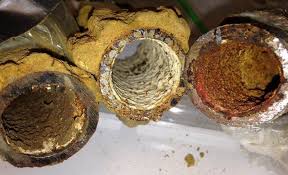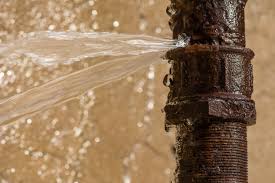 March 2019
March 2019
Water pipes, an essential infrastructure component of condo buildings, require regular maintenance to serve their intended lifetime purpose. Avoiding lead in water and pinhole leaks are ongoing concerns in condo buildings.
Lead piping was first introduced in the late 1800s. By the 1900s over 70 per cent of water pipes were made from lead. During this period harmful effects of lead were being discovered. Lead was found to leech onto water passing through lead pipes. Today, lead in water can be a concern for older condo buildings that still use lead pipes and/or copper pipe installed prior to the 1980s.
Lead is a toxic metal detrimental to human health. It can damage the central or peripheral nervous system, impair hearing, and affect blood cell formation. Extreme exposure can result in a coma ultimately causing death. Children and women during pregnancy are particularly susceptible.
Recent reports suggest that up to 15 per cent of Toronto water has dangerously high levels of lead, and 5.4 per cent have lead levels double that which is considered safe. In 2014 Toronto began treating all its drinking water with phosphate, an anti-corrosive agent designed to form a very thin protective film inside all distribution water pipes, to keep the lead from leaching into the water.
 Pipe replacement, replacing lead pipe with plastic pipe, is one way to deal with lead pipes. A less intrusive, more economical and easier approach is to adopt a solution similar to what is done by Toronto. Place a liner or barrier coating on the inside of pipes to prevent lead from being exposed to and interacting with drinking water. Initially developed to address the problem of lead pipes, this barrier film technology can also prevent pinhole leaks and extend the life of pipe systems.
Pipe replacement, replacing lead pipe with plastic pipe, is one way to deal with lead pipes. A less intrusive, more economical and easier approach is to adopt a solution similar to what is done by Toronto. Place a liner or barrier coating on the inside of pipes to prevent lead from being exposed to and interacting with drinking water. Initially developed to address the problem of lead pipes, this barrier film technology can also prevent pinhole leaks and extend the life of pipe systems.
Coating pipes with epoxy to protect against lead goes back to 1987 when an epoxy-lining technology was developed to protect military water piping systems. This technology was later modified to service the domestic marketplace and is the basis of what is now used in many condo buildings.
LEaC Shield has been providing pipe protection systems since 1992. Jim Lorenzen, company president, explains the benefits of their thin-film technology. “Instead of breaking through walls and cutting pipes to replace damaged portions of pipe, a coating is placed into pipes that protects the metal by creating a protective barrier. This barrier can prevent lead from leeching into drinking water and prevent pinhole leaks. It can be used on metal, epoxy coated, plastic and cement pipes. Available technologies, properly maintained, can have a life expectancy exceeding the life of most pipes.”
Pipe barrier film systems are available at less than a third of the cost of pipe replacement, with installation taking a day or two rather than months. The barrier film method has an estimated useful life of 60+ years, which is at least two times longer than installing new pipe.



